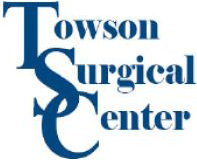Reflux Esophagitis
Overview
Reflux esophagitis is one of the complications that can come from having chronic heartburn and acid reflux, also known as gastroesophageal reflux disease (GERD). Esophagitis is inflammation that damages the lining of the esophagus and often causes painful or difficult swallowing and chest pain. The type of esophagitis caused by heartburn and acid reflux/GERD is known as reflux esophagitis.
Causes of Reflux Esophagitis
Reflux esophagitis is caused by acid reflux/GERD. Acid reflux occurs when the lower esophageal sphincter (LES) muscle located at the bottom on the esophagus weakens or relaxes abnormally allowing acid to flow back into the esophagus. Frequent acid reflux can cause chronic inflammation and damage to the esophagus.
Symptoms of Reflux Esophagitis
- Difficulty swallowing (dysphagia)
- Painful swallowing (odynophagia)
- Chest pain
- Swallowed food becoming stuck in the esophagus
- Nausea
- Vomiting
- Abdominal pain
- Cough
- Decreased appetite
Factors that can increase the risk for reflux can also increase the risk of developing reflux esophagitis.
Risk Factors for Reflux Esophagus
- Obesity
- Smoking
- Pregnancy
- Hiatal hernia
- Eating foods that trigger reflux such as fatty foods, tomato-based foods, citrus fruits, caffeine, alcohol, spicy foods, garlic, onion, chocolate and peppermint
If left untreated, reflux esophagitis may change the structure and function of the esophagus and lead to more serious complications such as Barrett’s esophagus, strictures and esophageal cancer. Your doctor can diagnose reflux esophagitis by performing an upper endoscopy. You can treat reflux esophagitis by taking over-the-counter medications such as antacids, H2-receptor antagonists or PPIs, also known as proton pump inhibitors. If these medications do not offer relief for your symptoms, your doctor may suggest surgery. There are also lifestyle changes you can make to alleviate the symptoms of reflux esophagitis.
Lifestyle Changes for Reflux Esophagitis
- Avoid trigger foods that might increase your acid reflux
- Maintain a healthy weight
- Quit smoking
- Avoid lying down after eating
